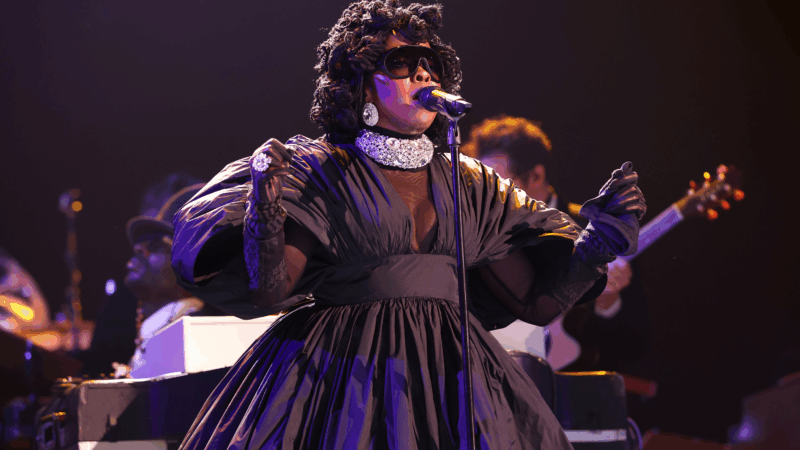Interview: UAB Space Archaeologist and TED Prize Winner Sarah Parcak
To some, the fact that “space archaeology” is actually a thing will come as news. Practitioners use satellite imagery to discover and analyze ancient ruins, and increasingly, to spot looting. University of Alabama at Birmingham archaeologist Sarah Parcak is a leader in the field, and she’s just been named winner of the 2016 million-dollar TED Prize, meant to support her work and a future project of her choosing. That project will involve protecting antiquities around the world and will be revealed in detail in February, but for now, WBHM’s Dan Carsen caught up with Parcak after a whirlwind press conference. She talks terrorists, technology, women and children in science, and colleagues she calls “the real heroes of culture.” But she starts with a boiled-down explanation of her work.
To listen to the on-air four-minute conversation, click above. To read key excerpts, hear the web-exclusive 11-minute interview, or hear today’s UAB press conference, see below.
“Think Google Earth on Speed”
That’s how Parcak sums up her work in one sentence. Elaborating a little: “[We use] satellite imagery, algorithms, and computer software … to pull things out of landscapes that we can’t see with our naked eye … pyramids, tombs, new [to us] settlements and many other features all around the world. But that’s only step one. You then have to go out into the field. It’s called ‘groundtruthing’ — you’re literally checking out if what’s buried in the ground matches what you’re seeing from space.”
Lives at Risk, Colleagues Killed
“The chief archaeologist of Palmyra, Khaled Asaad — he decided to stay on at the site even when ISIL was approaching … and he died protecting the site. So many of my friends and colleagues are risking their lives … I’ve had friends that have almost lost their lives protecting sites from looters, and they’ve undergone gunfire, so this is very very serious. The people who are in the field, doing this every day — I call them the real culture heroes.”
Role Modeling
“I’m a big supporter of kids doing science, especially young girls. And I don’t think there are enough examples of women doing science on TV. It’s hard being a female scientist … we’re always breaking glass ceilings for the next generation. Hopefully it’ll be a little bit easier for them.”
Like in the Movie, but Minus the Bullwhip?
“If people want to call me Indiana Jones, I say that I’m more sites, less stubble.”
Below is the 11-minute web-only interview. Just a few of the additional subjects include Al Qaeda and southern barbecue:
Below is the UAB press conference:
Supreme Court appears split in tax foreclosure case
At issue is whether a county can seize homeowners' residence for unpaid property taxes and sell the house at auction for less than the homeowners would get if they put their home on the market themselves.
Top House Dem wants Justice Department to explain missing Trump-related Epstein files
After NPR reporting revealed dozens of pages of Epstein files related to President Trump appear to be missing from the public record, a top House Democrat wants to know why.
ICE won’t be at polling places this year, a Trump DHS official promises
In a call with top state voting officials, a Department of Homeland Security official stated unequivocally that immigration agents would not be patrolling polling places during this year's midterms.
Surgeon general nominee Means questioned about vaccines, birth control and financial conflicts
During a confirmation hearing, senators asked Dr. Casey Means about her current positions and her past statements on a range of public health issues.
Rock & Roll Hall of Fame 2026 shortlist includes Lauryn Hill, Shakira and Wu-Tang Clan
The shortlist also includes a 1990s pop diva, heavy metal pioneers and a legendary R&B singer and producer.
This novel about family drama is so good you may want to re-read it immediately
Allegra Goodman's new novel is called This Is Not About Us, but critic Maureen Corrigan says that title is coy: Readers are bound to see aspects of themselves and their families in these pages.







